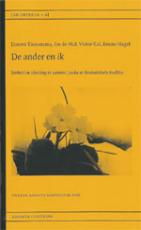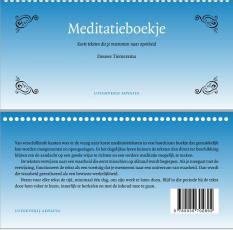Advaita Post 09 - 11 - Pity and compassion can easily convert into the non-duality of an experience.

Year No. 9 11 (June 23 2008)

The non-duality of experience (2)
A talk given in Gouda May 14, 2008
Is it clear that in physical touching there is really just one sensorary apparent thing? Skin and wind, subject and object, can no longer be experienced separately. Isn't that right? You have to start thinking in order to pull them apart. You hear the beautiful music. And the distance disappears. You have to begin thinking quite vigorously in order to detach yourself from the music. See for yourself what kind of construction this thinking implies. The natural non-duality that you find everywhere, prevails. Through separation a body is contructed, a person with a self-image and personal data, and in thinking about the music, the whole of tonalities, the composition that a composer has written, and so on. Do you see the complexity? Do you see the construction?
Of course, you can always retreat back into your consciousness and see the content of every experience at a distance as an objective manifestation. In a sense, that is also good, namely to become free of all kinds of unconscious identifications, of all kinds of attachments and ties. But at a given moment everything will again return to the natural non-duality.
Is perhaps the process of returning to consciousness a process of duality? Of: 'I am aware of something'?
First then there is indeed an enhanced duality. The withdrawal will help you to become aware of all attachments, of the unconscious identifications that were there. "I thought I was the body, but now that I withdraw into myself as consciousness, I can see that I am not a specific body." That creates a large space in which everything can be present and merge with yourself. So it's not a question of letting go of everything in the sense of "I want to keep a distance." That would mean flight. Everything can come back in openness, without resistance and in non-duality. But that can only happen when those old specific identifications have come loose.
Yes, space is important, because distance dissolves the attachment.
On a personal level there is a limited I-self, an ego which functions in the world. That ego is a hardened and concentrated energy that wants to take all the good things in order to increase itself, but it also wants to keep away the less beautiful things. This hardening of the ego prevents the acceptance of other people and that of pain and suffering. The ego always has its own resistance and defense mechanisms.
When that ego-cramp is broken through, everything becomes open. Then everything is allowed to be without distance. That can happen from out of the I-person, if you will look very precisely at how it is with your experience. We were just speaking about that. In the experience the person disappears, and also what you experience, "Oh how delightful, the taste." Where is the person? Where is the ice cream? They are not there anymore. What remains is: one taste.
But on the other hand, there is still suffering ...
Yes, also concerning the suffering, there is no distance. That too can be accepted. The ego with its own self maintenance program cannot accept that. It can't take the suffering upon itself and doesn't want to. That is precisely the process of resistance and of maintaining a distance. Only when the relaxation comes in the experience and also in yourself, then you no longer hold anything firmly.
Although you merge with the suffering of another, still there can be a very subtle feeling that arises to ease the suffering of the so-called other, to want to help.
With the experience of suffering it can happen, as the immediacy of the experience becomes stronger, that pity and compassion convert into the non-duality of 'one-experience'. And that is universal. Then there is no longer a person involved in it.
It is good to recognize that. Those moments occur regularly for everyone, the beautiful experiences and the less beautiful experiences. When you come together, the separations disappear, the person with its resistance reactions disappear. Primarily, there is one experience. That becomes universal and after that it's silent. Then there's nothing left to say. The qualities disappear and all is still. Grief and suffering are not to be found on the psychological level, such that "you can handle them." It can become a 'one-experience' which then becomes universal. The particular qualities become dissolved. Are you sad? If you think about yourself and your feelings: yes. If you don't think about it: I don't know. If the I and its great grief have grown strong for a long time, they can suddenly disappear and what remains is unspeakable silence.
Then the ice cream doesn't taste sweet any more.
No. See what people really value in an ice cream. This is first because it is sweet, and has a delicious taste. But when they are really going to enjoy it, it is not so much the specific sweet taste of the ice cream, as it is the universal enjoyment. If that enjoyment is allowed to continue, all becomes still. You don't hear the children and adults any longer while they enjoy their ice cream and have merged into it. How about happiness? "Oh, my life is good." Yes, but when that turns into happiness, it is clear that happiness is endless. Otherwise it's not happiness, but a good feeling of a person who also experiences other things. No, if there is happiness, it is universal, without a person. So also with an ice cream: First, there is a delicious taste that is in the ice cream. If you don't resist this experience by maintaining a distance, then there is but one delight. "It's delicious!" The delight overwhelms you and becomes universal. One lick of an ice cream ... and you're enlightened, if you really enjoy it 100%.
So, let the enjoyment and the suffering come in completely. Let each experience fully unfold itself without resistance.
Er is geen tweeheid
als je ontspannen bent
in zelf-bewustzijn
is dat duidelijk.
Boeken
Douwe schreef en redigeerde gedurende zijn leven boeken. Via onze uitgeverij zijn deze nog verkrijgbaar.



